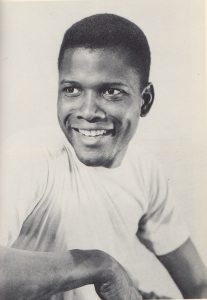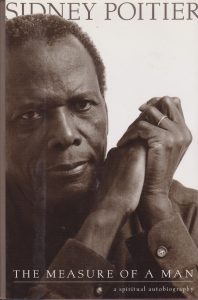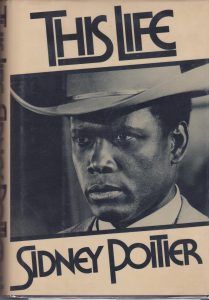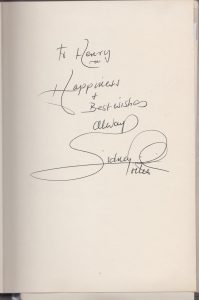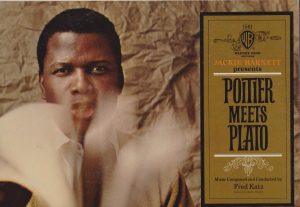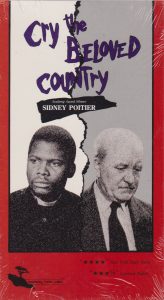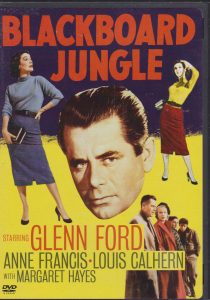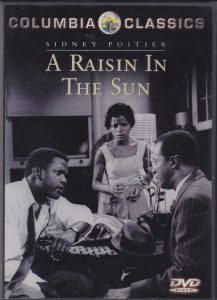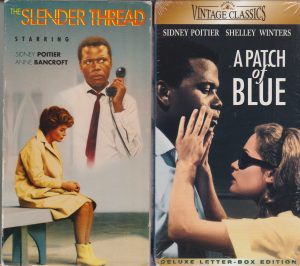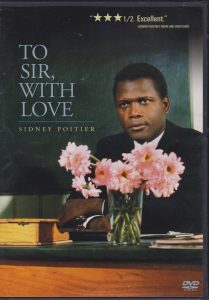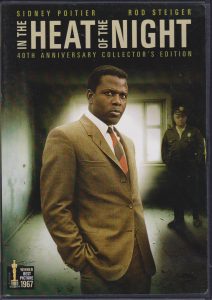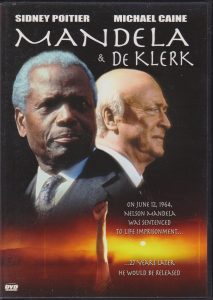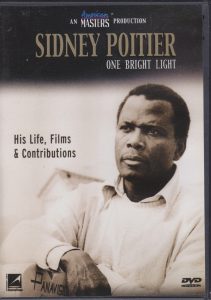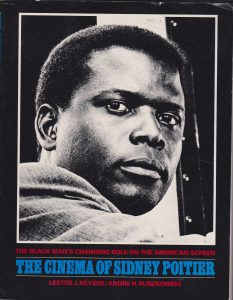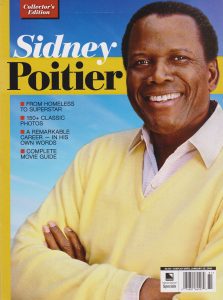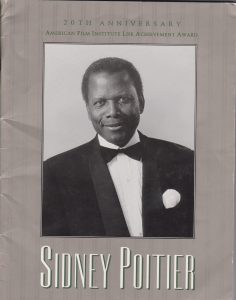Sidney Poitier, 94. (1927-2022)
Massive presence. Huge life. Magnificent film career.
I consider myself very fortunate to have attended his “Evening with Sidney Poitier” here at the Jubilee in little old E-Town about a decade ago. Some people have presence writ large and he was a prime example.
I saw all three key films made in 1967 which cemented his reputation: To Sir, with Love, Guess Who’s Coming to Dinner, and the unforgettable In the Heat of the Night (with the slap of a white man’s face that was heard across America). Before that, The Blackboard Jungle in which he plays a cool, somewhat ambiguous teen who, surprisingly, turns out to be a good guy. The Slender Thread, A Patch of Blue, The Defiant Ones, and A Raisin in the Sun. Sid was hot, likable, and a powerful actor.
First black actor to win an AA. Front-line champion of Civil Rights. A director of some very funny comedies like Uptown Saturday Night and Stir Crazy. And an action-film actor later in his career. Sid did it all.
But I also got to know him better through his audiobooks like The Measure of a Man which revealed his troubled coming of age, transition to America, and initial film successes. I recall well his near-escape from death as a kid when he was trapped by the sea in a collapsing channel and, later, his itinerant life of street poverty sleeping where he could, even on rooftops in New York City. If you want to get to know him better, that would be the place I recommend you start.
A great human being and talent whose name has long been synonymous with courage, integrity, and genuine class.
(The book his excellent audiobook was based on; one of a few fine books he wrote about his life and upbringing.)
(His first bio, a signed copy of which I have–below.)
(Signed, confidently and very self-assured, at the height of his career for a movie theatre mogul-friend.)
(Likewise, made around the same time: a bold, risky LP; a hip jazzy spoken word album reciting philosophical excerpts from Plato–these available on the Internet.)
(A somewhat scarce early work; his performance in the first (South African) adaptation of Alan Paton’s Cry, The Beloved Country.)
(First film of his I saw as a teenager; he steals several scenes.)
(A huge, dynamic performance as a father and husband in Lorraine Hansberry’s famous play about urban blacks being discriminated against when they go house-hunting.)
(Although he’d won the AA for Lilies of the Field, he continued to give even stronger, memorable roles in very different challenging parts during 1965 and 1966.)
(Till he finally achieved major stardom in 3 films in one year; in the above film, as the charming teacher with integrity who teaches poor English high-school students memorable lessons about life and character.)
(Another of the ’67 films, which was a major social commentary on the racist American South; a very risky project for Poitier whose life was threatened during the shooting; he stayed with Canadian director Norman Jewison in his hotel room for this reason.)
(The memorable roles continued late in his career; he worked often with big stars like Michael Caine, Harry Belafonte, and Robert Redford.)
(The definitive documentary)
(Often written about by critics as one of the great actors.)
(A recent magazine about him, nicely timed.)
(He was saluted in this wonderful 1992 ltd. ed. souvenir program–many scenes from his movies with commentary.)

